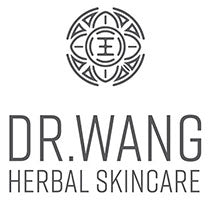Traditional Chinese Medicine (TCM) has been around for centuries and is an important part of Chinese living. TCM’s primary goal is to establish and maintain the internal stability of the systems at work inside the body through the balance of yin-yang, two opposite but complementary forces.
The body’s Yin (cold energy) and Yang (hot energy) need to be flowing evenly throughout your body in order to have balance. If a problem should arise, it is due to an imbalance. This balance can be impacted by a number of different factors, but typically diet is the biggest one.
TCM focuses on solving problems internally rather than externally in order to promote self-healing. Followers of TCM believe that herbal medicine has the power to treat various ailments, including irritated or sensitive skin.
It is believed that, although our skin is an external organ, problem skin is a result of a person’s internal health. Instead of treating the skin as if it were a separate system, TCM views that body as an interconnected network of complex parts.

TCM and Atopic Dermatitis
Atopic Dermatitis is a chronic disease, characterized by itchy and inflamed skin. There is a significant and growing interest in Chinese herbal medicine as a treatment for atopic dermatitis, as the prevalence of atopic dermatitis has increased.
A case study was conducted on a six-month-old boy who suffered from atopic dermatitis. The study sought to determine if Chinese herbs and TCM could help to alleviate the boy's symptoms. The boy had red, dry, and itchy patches on both of his cheeks and inside the creases of both elbows and knees. He had originally been diagnosed by a pediatrician when he was two months old. After the diagnosis, they tried treating these symptoms with a soy-based formula, and a 0.5% Hydrocortisone ointment but the condition continued. After exhausting those options, he was then was prescribed a Chinese herbal decoction. According to the study, “as the TCM diagnosis of this patient’s case was found to be deficiency of the spleen function (Qi), it was imperative to tonify and strengthen the spleen in order to eliminate the retention of dampness in the skin...Concerned with the patient’s young age, the treatment approach chosen was to select traditional Chinese herbs with gentle taste and functions but yet with the potency to accomplish the desired result.” The formula was given to the infant four times per day for six months. The skin rashes gradually decreased and the patient stopped scratching his skin. By the age of 15 months, the symptoms had completely disappeared. The patient was monitored for the next six years, during which time there was no recurrence of his symptoms reported by his family.
This is only one specific case study, but there are many like it that demonstrate just how effective TCM is at treating atopic dermatitis and other skin allergies that can sensitize the skin.

Acupuncture
The severe itchy skin associated with atopic dermatitis and sensitized skin is easily the most debilitating symptom. Scratching the skin can destroy the natural skin barrier, leading to bleeding and possibly infection. When ointments and antihistamines don’t stop the itch, TCM comes in. One of the most studied and practiced components of TCM is Acupuncture. It has been used for 3,000 to 5,000 years! Its prevalence over the years is what inspired researchers to study its effects on atopic dermatitis.
Research has shown that acupuncture is able to provide better results than traditionally prescribed antihistamines and preventive antipruritic systemic drugs. While researchers are not exactly sure why it works, there are several theories.
According to DermNet, “they [researchers] believe that acupuncture might work by the stimulation of Raphe nuclei, which increases serotonin production. This, in turn, sets off a series of reactions that culminates in the increase of glucocorticoids that modulate inflammation and other aspects of the body’s immune response. Since many skin conditions are at least in part inflammatory, acupuncture may have a positive effect through the reduction of inflammation.” These factors could also be responsible for healing lesions, as well as the normalizing and thickening of the skin.

How We Can Help
Steven Wang, MD and Gui Wang, LAc have been working together for over 20 years to provide potent, herbal remedies for spas and individuals around the world. The father-son duo mixes Traditional Chinese Medicine (TCM) with cutting edge scientific advances with the aim of bringing relief, comfort, and happiness to our customers. Our products are the result of decades of dedicated research.
We believe that utilizing both modern Western medicine and time-honored Eastern medicine allows us to provide unique skincare solutions. To learn more, read what experts from The New York Times, Allure, Reader’s Digest, and more have to say about our revolutionary products!




